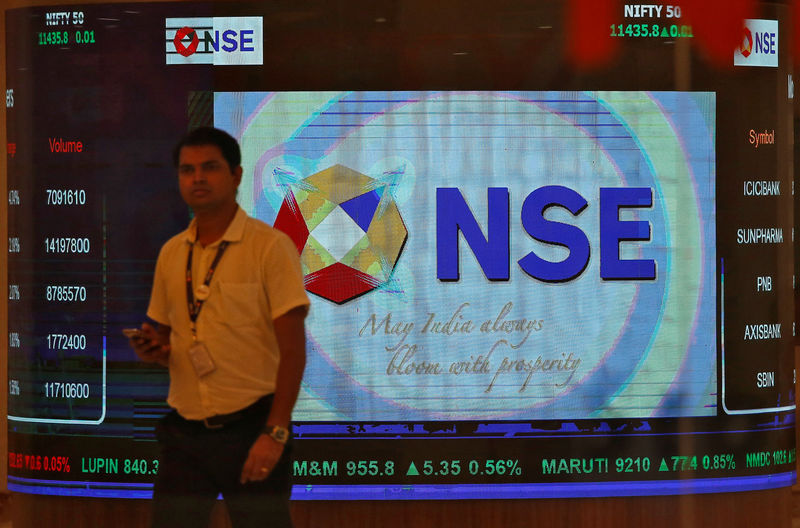By Patturaja Murugaboopathy and Gaurav Dogra
(Reuters) - As domestic economic concerns overtake last month's national election euphoria, India's stock market rally has lost steam and the index is lagging its Asian peers.
The broader NSE index (NSEI) climbed to a record high in early June on hopes for more economic reforms after incumbent Prime Minister Narendra Modi's landslide election victory. But share prices have since succumbed to concerns over sluggish domestic consumption, rising bad bank loans and rich valuations.
(Graphic: India price performance - https://tmsnrt.rs/2G23rCn)
Lacklustre earnings growth in the fourth quarter of the financial year ending in March and slowing consumer spending capped the local market's gains even as other regional markets rose in tandem with a drop in U.S. yields and a revival of Sino-U.S. trade talks.
The NSE index has fallen 1.2% from a peak it hit on June 3, compared with the MSCI Asia-ex-Japan index's (MIAPJ0000PUS) gain of over 6% in that period.
"We still own Indian stocks, even though less so. The market has celebrated probably more than enough," said Michael Kelly, the global head of a multi-asset strategy for PineBridge Investments, referring to Modi's election victory.
Troubles in India's shadow-banking sector have also raised market volatility and caused short-term funding stresses in the banking system. As a result, companies' interest costs have soared, affecting their margins.
A Reuters analysis of 440 non-financial Indian companies showed their combined net profits fell for the second successive quarter in March. Their revenues also posted their slowest growth in five quarters due to slowing demand.
(Graphic: Indian companies revenue and profit growth - https://tmsnrt.rs/2YCXnXS)
India posted its slowest growth in five years in March, and recent data showing a fall in car sales and slowing industrial output points to a further slowdown in the economy.
(Graphic: India car sales - https://tmsnrt.rs/2FPWowb)
Below-normal rainfall this year is adding to concerns about growth. The monsoon season - which accounts for 70% of India's annual rainfall and is the lifeblood of its $2.5 trillion economy - has delivered 28% lower-than-normal rainfall since the start of the season on June 1, according to data compiled by the India Meteorological Department.
(Graphic: India rainfall map - https://tmsnrt.rs/2FQptb3)
Higher oil prices also pose a threat to the economy in the form of higher import costs, thereby widening the current account deficit. Analysts said rising oil prices would slow down consumer spending further.
(Graphic: India's twin deficits - https://tmsnrt.rs/2FLLGHd)
"The key risks for the market is a sharp rise in the oil prices," said Rajat Agarwal, a strategist at Societe Generale (PA:SOGN). He added higher oil prices had so far had a limited impact on the Indian rupee this year due to strong foreign portfolio inflows ahead of the elections.
Recent exchange data showed foreigners invested just $340 million in Indian equity markets in June, the lowest in five months.
(Graphic: India FII - https://tmsnrt.rs/2FPBjCa)
Despite these concerns, Indian shares are trading at a steep premium to other emerging market peers.
(Graphic: Valuation of Asian equities - https://tmsnrt.rs/2Yqemg6)
